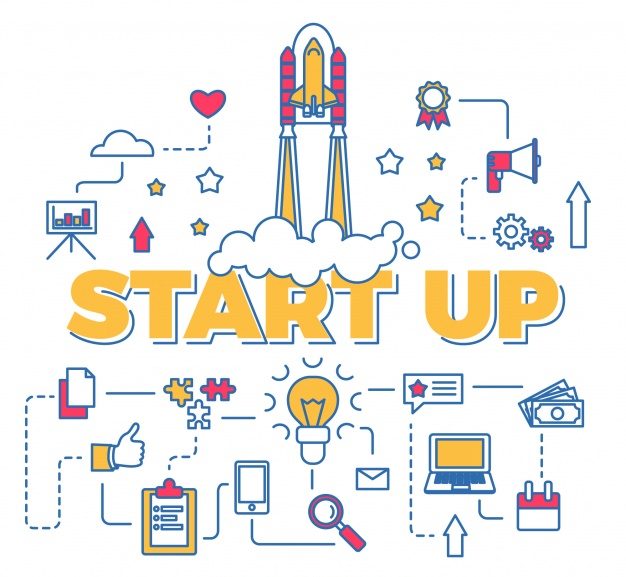Last year, funding for African startups surpassed $2 billion, returning to pre-pandemic levels and presenting a mixed outcome as expected. Signs indicate that 2025 will follow the cautious trends seen over the past two years.
A significant drop in mega-deals, reflecting the global venture capital tightening since the 2020-2021 boom, led local and international investors to prioritize sustainable business models and clear paths to profitability.
This shift created challenges for well-funded startups that didn’t meet these criteria, resulting in high-profile closures, such as mobile commerce platform Copia and agri-focused data analytics firm Gro Intelligence. Notably, both companies had raised over $100 million in venture funding, with Gro Intelligence reaching a valuation of $850 million at its last priced round.
While startup failures in Africa were previously mostly seen in pre-seed and Series A stages, these closures, including Ghanaian fintech Dash and Nigerian biotech 54gene in 2023, highlight a turning point in the ecosystem, where even growth-stage and late-stage startups are now facing increasing risks.
Rather than succumbing to the pressures of 2024, some opted for strategic pivots rather than closures. For example, B2B e-commerce giants Wasoko and MaxAB merged operations to conserve cash and streamline resources, leveraging shared industry experience to navigate the challenges.
Meanwhile, the likes of Moniepoint, Moove, and TymeBank flourished, drawing attention with notable investments from Uber, Google, and Nubank, respectively, fueled by strong growth metrics and profitability.
These developments reveal the dual realities of Africa’s post-boom tech landscape: rising challenges and resilient adaptations.
In this environment, unicorns and soonicorns remained in the spotlight, as they always have. Their successes and struggles not only highlight the continent’s vast potential but also influence conversations about the future of its tech ecosystem.
Against this backdrop, it’s an opportune time to highlight these billion-dollar ventures and the up-and-comers trailing behind.
Unicorns in Africa
Flutterwave (2021) — $3 billion: Founded in 2018, Flutterwave provides payment solutions to individuals and businesses across Africa, facilitating transactions between them and international markets. The Nigerian fintech has raised over $475 million in funding, including a $250 million Series D. Investors include Tiger Global, Avenir Growth, and DST Global.
OPay (2021) — $2 billion: OPay offers a range of digital financial services, including mobile payments, savings, lending, and bill payments via agents and an app. Founded in 2018 as an offshoot of internet company Opera, OPay has raised over $500 million, including a $400 million Series C. Investors include SoftBank Vision Fund 2, Sequoia Capital China, and Redpoint China.
Wave (2021) — $1.7 billion: The Senegal-based fintech provides low-cost mobile money services to make banking more accessible and affordable in Francophone Africa. Founded in 2018, Wave raised a $200 million Series A from Stripe, Sequoia Heritage, Founders Fund, and Ribbit Capital.
Andela (2021) — $1.5 billion: Andela is a global talent marketplace that connects companies with vetted, skilled software engineers, product managers, and other tech professionals. Founded in 2014, Andela has raised over $380 million, including a $200 million Series D. Backers include SoftBank, the Chan Zuckerberg Initiative, and Spark Capital.
TymeBank (2024) — $1.5 billion: The South African digital bank offers transactional accounts, savings products, and cash advances, primarily targeting lower-income individuals and businesses. Tyme Group, the parent company of TymeBank and the Philippines’ GoTyme, raised $250 million in Series D funding in February, led by Nubank. Other investors include M&G Catalyst Fund, Tencent, African Rainbow Capital, and Norrsken22.
Chipper Cash (2021) — $1.25 billion: Chipper Cash enables users to send and receive money across African countries, offering card and investment products. The fintech has raised over $300 million, with investors such as FTX, Ribbit Capital, Bezos Expeditions, and SVB Capital.
Interswitch (2019) — $1 billion: Founded in 2002, Interswitch provides integrated payment and transaction solutions across Africa. The Nigerian fintech has raised over $300 million, including a $200 million Visa-led round. Other investors include Helios Investment Partners and Leapfrog.
MNT-Halan (2023) — $1 billion: Egyptian financial super app MNT-Halan, founded in 2017, offers digital lending, payments, e-commerce, and buy-now, pay-later solutions targeting the underserved and unbanked. MNT-Halan has raised over $500 million in equity and debt financing. Investors include Chimera Investments, Apis Growth Fund II, and Development Partners International.
Moniepoint (2024) — $1 billion: Nigerian fintech Moniepoint, founded in 2015, provides financial services such as digital banking and payments, credit, and business management tools for businesses and individuals across Africa. Moniepoint secured $110 million in Series C funding last October. Investors include QED, Development Partners International, Google’s Africa Investment Fund, and Lightrock.
At the start of 2024, Moniepoint and TymeBank were valued at $850 million and $965 million, respectively, making them Africa’s top contenders for unicorn status — a milestone they achieved that year.
African “Soonicorns”
PalmPay — $800 million to $900 million: Launched in 2019, Nigerian fintech PalmPay offers money transfers, bill payments, airtime purchases, and credit services. PalmPay has raised $140 million across two funding rounds, including a $100 million Series A in 2021. Investors include Transsion Holdings, Chuangshi Capital, Chengyu Capital, and AfricInvest.
Moove — $750 million: Moove, founded in 2020, provides revenue-based vehicle financing to gig workers, enabling them to access vehicles for ride-hailing, logistics, and delivery services. Moove has raised over $409 million in funding from investors such as Uber, which led its recent $100 million Series B round, Mubadala Investment Company, Speedinvest, and Stride Ventures.
Yassir — $600 million to $800 million: Yassir, an Algerian startup, operates a super app offering on-demand services like ride-hailing, food and grocery delivery, and financial services across six countries. Yassir has raised nearly $200 million from BOND, Y Combinator, and Stanford Alumni Ventures.
Kuda — $500 million: Founded in 2019, Nigerian digital-only bank Kuda offers banking, savings, and lending services, as well as smart budgeting and spending features. Kuda has raised over $90 million, including $55 million in Series B funding, pushing its valuation to $500 million. Investors include Target Global and Valar Ventures.
Wasoko/MaxAB — About $500 million: Kenyan B2B e-commerce platform Wasoko and Egyptian counterpart MaxAB have merged to form Africa’s largest digital platform for informal retail. Both startups have raised nearly $240 million collectively from Tiger Global, Silver Lake, British International Investment, and Avenir Growth, resulting in a combined valuation of around $500 million.
Clickatell — About $500 million: South African-born Clickatell enables businesses to interact and transact with customers through messaging channels like SMS and WhatsApp. Clickatell secured $91 million in a Series C round in 2022, raising its total to over $100 million. Investors include Sequoia Capital, Arrowroot Capital, and Endeavor Global.
M-KOPA — About $500 million to $600 million: Founded in 2011, Kenyan lender M-KOPA offers access to smartphones, electric motorcycles, and digital financial services like loans and health insurance through a pay-as-you-go model. M-KOPA has raised over $500 million in combined debt and equity funding, with investors such as Sumitomo, Lightrock, Standard Bank Group, and the International Finance Corporation.
Yoco — $400 million to $500 million: Yoco, a South African fintech, provides payment solutions and business tools for SMEs. Yoco has raised over $107 million, including $83 million in Series C funding. Investors include Dragoneer Investment Group, Breyer Capital, HOF Capital, and 4DX Ventures.
Onafriq — About $300 million to $500 million: Formerly MFS Africa, Onafriq operates the continent’s most extensive digital payments hub, connecting millions of mobile money wallets across Africa for cross-border payments and financial integrations. Onafriq has raised over $300 million, including $100 million in Series C funding. Investors include AfricInvest, CommerzVentures, and Admaius Capital Partners.





